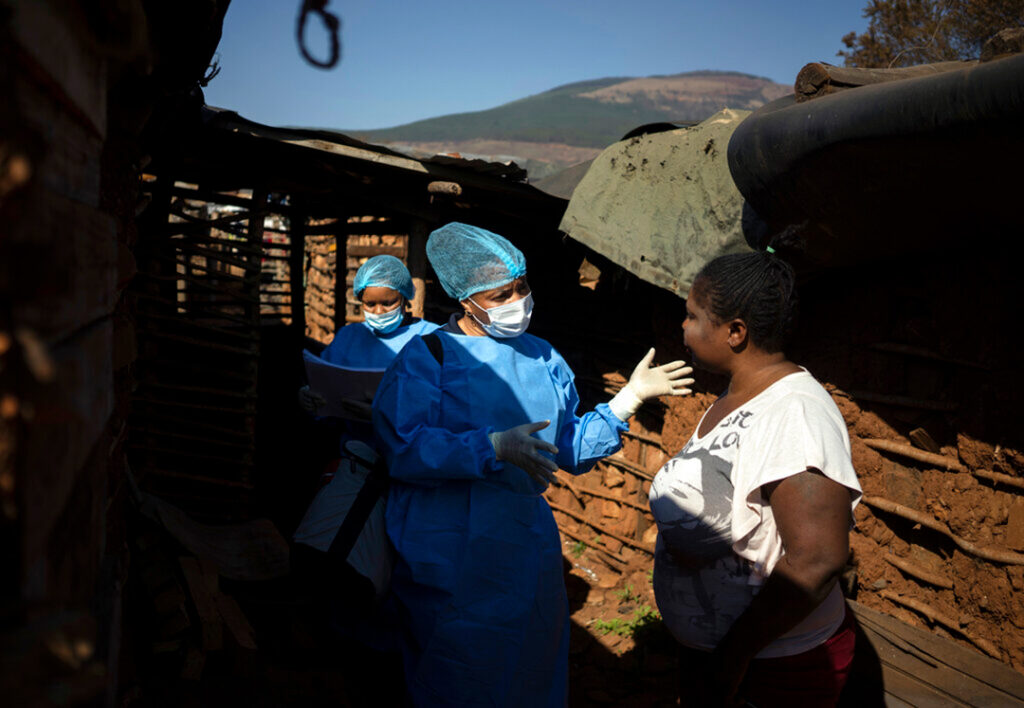ADF STAFF
As the more contagious, but less deadly omicron variant of COVID-19 begins to recede throughout the world, scientists and health care workers continue to discover new facets of the disease. Researchers now are reporting that COVID-19 can mutate in the bodies of patients with weakened immune systems, such as people with untreated HIV.
In January, media reports emerged of a 36-year-old woman in Durban, South Africa, who was struggling to maintain her medical treatment for HIV. With her compromised immune system, she caught COVID-19 and lived with it for seven months. During that time, researchers say, the virus acquired 32 mutations within her body.
Scientists from Stellenbosch University and the University of KwaZulu-Natal in South Africa have reported that a 22-year-old woman suffering from inadequately treated HIV had COVID-19 for nine months and developed 21 mutations in her body.
Despite the advances in the treatment of HIV and AIDS that allow patients to live relatively normal lives, many HIV patients in South Africa and other parts of the world remain untreated. This has been particularly the case in the past two years, as the treatment and prevention of COVID-19 has overshadowed the treatment of other medical conditions such as HIV, tuberculosis and malaria. The pandemic has prevented the delivery of health services and slowed years of progress made in the battle against other diseases.
“The COVID-19 pandemic has brought hidden, dangerous knock-on effects for health in Africa,” Dr. Matshidiso Moeti, the World Health Organization’s regional director for Africa, said during a November 2020 news conference. “With health resources focused heavily on COVID-19, as well as fear and restrictions on people’s daily lives, vulnerable populations face a rising risk of falling through the cracks.”
More than a year after Moeti’s warning, researchers are finding that COVID-19 testing and prevention continue to take resources away from other diseases worldwide. A January 2022 report by the journal BMC Women’s Health warned of “medium-to-longer-term collateral damage” in other parts of the health care sector as a result of the pandemic.
“The situation is especially dire in low- and middle-income countries where under-developed public health and social support systems are being put under further stress,” the report said.
An estimated 8 million people in South Africa — 13% of the population — now live with HIV. The best treatment for the disease, antiretroviral medicines, is highly effective and allows patients’ immune systems to work normally. But antiretrovirals are not a cure and must be taken consistently. Researchers say that 3.6 million South Africans either have the disease without knowing it or are not on a consistent treatment plan.
Researchers at Johns Hopkins University reported in January 2022 that people with HIV have a much higher risk of contracting COVID-19 than those without it.
Researchers in Spain have concluded that people with HIV are more likely to experience severe COVID-19 than do non-HIV patients. But the researchers say that a firm conclusion is not yet possible because of study designs and the difficulties of coming up with appropriate comparison groups.
Still, scientists remain concerned that new COVID-19 variants could evolve, and be transmitted, by patients with compromised immune systems caused by undiagnosed or undertreated HIV.
“It means a major reorganisation of the health service because these people are difficult to find,” said Dr. Fareed Abdullah of the South African Medical Research Council, as reported by Sky News. “How do you make the diagnosis in these people? But that is where modern medicine has to take us, rapidly.”

